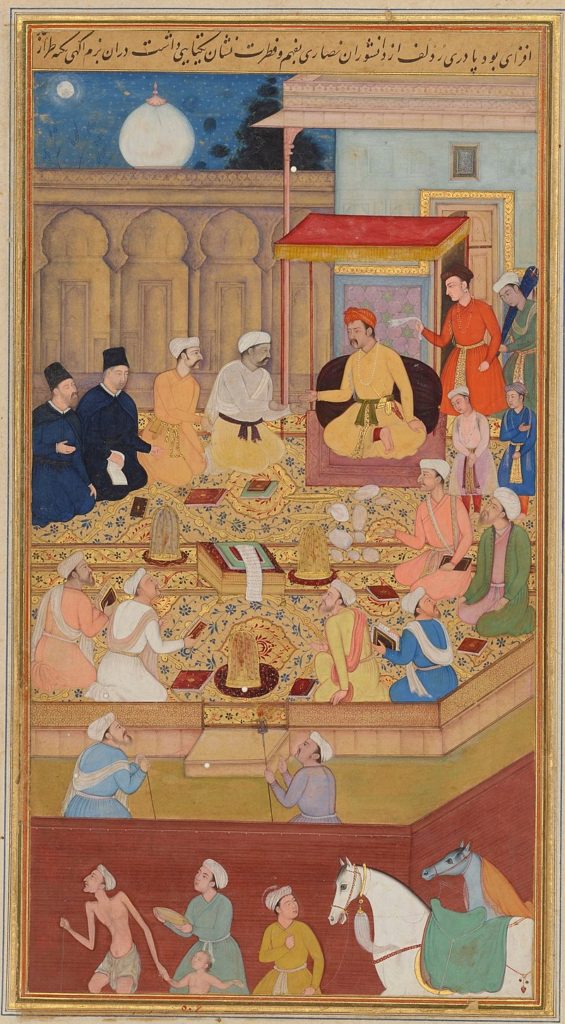Malkionism in the Third Age is a pathetic shade of its Second Age glory. The Middle Sea Empire ended in 990 and about a half-century later, Seshnela was shattered by the Luathelans. The great citadels of Malkionism – Frowal, Laurmal, Damolsket, Neleoswal, Orphalsket, and Old Pasos – all destroyed.
For three and a half centuries, Seshnela and Tanisor were an anarchy of petty robber baron clans of armored horsemen, who extracted tribute and support from the peasantry. Sorcerous learning survived in a few strongholds, in particular Leplain, the City of Wizards. For centuries, these barons squabbled and feuded, forming a kaleidoscope of factions and alliances, broken only by the occasional invasion from Ralios. These clans were centered on an extended family of heavily armored (often with iron) horse-riding warriors.
Around 1400, one of these barons, Bailifes the Hammer, began to unify the various “baronies”. Bailifes made an alliance with the sorcerers of Leplain – he would protect the sorcerers of the Rokari school and grant them oversight over matters of magic and learning. In exchange, they would support Bailifes and his family, and acknowledge them as the rulers.
In 1414, after his cavalry smashed the southern nobles at two battles, the Rokari proclaimed Bailifes King of Seshnela. This alliance between the Bailifids and the Rokari has been extremely successful for both groups, and the Bailifids have suzerainty over all the other “baronial clans”.
The Rokari school comes out of the post-God Learner Anarchy. It adds three articles to the Laws of Malkion:
- Mortal humans must know their place and caste. They are not gods, they are not men-of-all, rather they must fulfill their duties assigned to them from birth. The baronial clans (and the equivalents) became talars, with foot soldiers becoming horals. Everyone else are dronari.
- The gods are dangerous. Wizards of the Rokari school should be the intercessors between the divine world and men. Some gods and spirits are harmless or benign enough that they can be worshiped without much danger, but the Rokari should first make that determination.
- The House of Balifes is divinely inspired and their leader – the King – is the secular deputy of the Invisible God in the mundane world.
![]()
![]()
Weep at how much learning was lost in the West and how backwards modern Malkioni would look in the Second Age.
The idea of a fallen civilization is pretty common in our literature, and our history. But short of Thera, nothing in our past got smacked as hard as Seshnela in 1049. Probably somewhere around a million people got killed in a day. And this after the Closing cut the sea-trading nation off from the seas.
The Rokari are rightfully called the “realists”. They recognized that they needed to work with the Bailifides, and made a pragmatic bargain that has withheld the test of time. I could imagine a Rokari Machiavelli writing about the need to look at effectual truths rather than “imagined republics and principalities.”
In truth, I imagine that the Secret Secretorum is a common literary conceit where wizards write advice to the king in the form of letters from Malkion to Talor.

